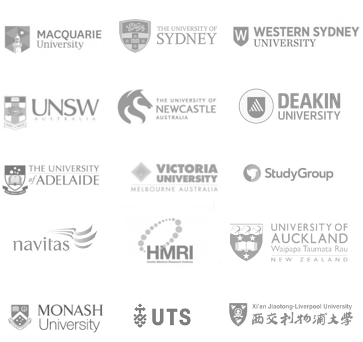Congratulations and welcome to Professor David McAlpine, who commences in this role in October 2015 at the Australian Hearing Hub(link is external). Professor McAlpine joins Macquarie(link is external) from his previous position as Director, UCL Ear Institute(link is external).
In this interview he talks about what he hopes to tackle in this critical role, ” Through the Australian Hearing Hub, Macquarie University is going to impact positively on the universal problem of hearing loss and I am proud to be entrusted with helping deliver that impact.”
http://mq.edu.au/thisweek/2015/09/14/an-inspirational-addition/#.VgSQTo-…(link is external)
Macquarie University is one of Australia’s most outstanding universities. In research it has emerged to be reliably positioned in the top 10 Australian universities and its education programs are widely recognised for their innovation and distinctiveness.
The Department of Linguistics at Macquarie University is one of the largest and most diverse linguistics departments and ranked among the top 50 institutions in the world for linguistics according to the 2014 QS World University Rankings by Subject.
The Department has a unique opportunity for an outstanding individual to take a leadership role in research and transformative learning at the interface between hearing, language and the brain complementing existing expertise at Macquarie University in these areas.
The Professor of Hearing, Language and the Brain is a newly created role based in the Department of Linguistics and located at the Australian Hearing Hub (AHH). The AHH (hearinghub.edu.au) is a world class facility established to build a global network of collaboration in hearing and language sciences and services. The co-location of leading researchers, clinicians, educators and technology developers in a single, purpose-built precinct on the Macquarie University campus has created a venue like no other for the advancement and translation of knowledge.
Macquarie University is an EO Employer committed to diversity and social inclusion. Applications are encouraged from people with disability; women (particularly for senior and non-traditional roles); Indigenous Australians, people who identify as GLBTIQ; and those from culturally and linguistically diverse backgrounds.


